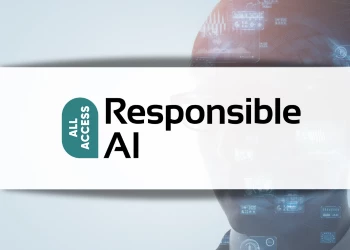Tackling the challenge of rapid growth through acquisition: Interview with AXON CEO Gary Stratulate
Add bookmark|
AXON is a rapidly expanding mid-sized company that sells products and services to energy companies for drilling and man-aging oil wells. In the past two years the company has seen its revenue increase by 614% and expanded its global footprint to encompass 34 facilities in 8 countries world-wide. The company has also acquired numerous comp-anies in the last couple of years, adding to its burgeoning port-folio of products and services. But rapid growth and company acquisition comes with a set of challenges and one of the ways that AXON has responded is by launching a performance ex-cellence initiative. In this PEX Network interview Gary Stratulate, CEO of AXON, describes the challenges of rapid growth, the importance of org-anizational culture and where his company is going next. |
Time to create one big balloon? |
This is a transcript of a recent podcast. It has been edited for readability. To listen to the original podcast, please click here.
PEX Network: In the past two years, AXON has seen its revenues increase by over 600%, and you’ve been expanding globally, so it sounds like things are really going well. What’s behind this new performance strategy?
Gary Stratulate: Over the last four years we have made roughly 23 small acquisitions; these are smaller companies with entrepreneurial leadership. What I’ve found is that the leadership of these companies are individuals that are heavily involved in all aspects of their businesses. While it worked for them as a stand-alone entity, it’s very difficult for us to create something that’s scalable.
If you look at these companies in isolation, they are like different-sized balloons. Individually, they may be having some success and they’re full of air. But, really, all you have is a bunch of smaller balloons. What I want to create is one balloon that I can put as much air as I want in. To do that, I need process. I need structure and process to make sure that it’s scalable and that we’re continually providing greater value to our customers, employees and stakeholders.
PEX Network: So rather than just managing each balloon separately, it becomes part of a greater whole?
Gary Stratulate: Yes. I needed a process that basically does away with the little balloons.
PEX Network: What does this performance strategy look like, then?
Gary Stratulate: We boiled it down to six key initiatives that were designed to provide transformational process and to build a culture. There are two aspects of what we’re trying to accomplish here: One revolves around people, and the other revolves around scalable process.
PEX Network: Picking up on that, one of the challenges when you’re dealing with so many acquisitions is the enormous difficulty of bringing together all these different companies in terms of the systems, the culture, and the processes. What kind of difficulties have you encountered as you’ve been trying to integrate those balloons, so to speak?
Gary Stratulate: I’ve been involved in trying to integrate not only smaller companies, but also larger acquisitions, and I believe that the difficulties are common between them.
A lot of people acquire companies but they don’t transition them into a single brand. They leave them operating as they once operated; they leave their logo and their identity out there. I wanted to mitigate this from the outset.
For example, if they all had a coffee cup from the company they were with, Brand X, we made sure we replaced that coffee cup with an AXON coffee cup. In other words, we needed for people in the acquired companies to let go of their old identity and to become part of the AXON team and brand.
That’s very important and I think you need to do that quickly. It’s not something that happens naturally over time. You need to act quickly, you need to bite the bullet, and you need to make them understand that they are now part of AXON. Their unique perspective and skill is important but it needs to be focused on creating one company, one culture, one brand.
PEX Network: So what are some of the ways that you’ve been addressing that?
Gary Stratulate: Most of the initiatives around integration of acquisitions are what I would call "soft" initiatives – they’re culture, they’re branding, they’re marketing. But all of that has to tie back into the AXON vision, our mission statement, our core values, and that involves putting together teams into these initiatives that are from a cross-section of employees. So our teams involve employees from many of the acquisition companies and they’re at different levels in the organization. This is not something you can push down.
This has to be mid-management and up, and mid-management and down. It’s got to bring together people with different understandings of what they know. They need to come together with an open mind so that they can understand what they don’t know, and create opportunity. To make sure that this is being done successfully, you need to challenge those teams. You need to have them report our successes and failures and you need to develop a process that allows them to do that and track their progress.
PEX Network: I understand that as part of all this you really see that employee motivation and happiness is really one of the keys to meeting ambitious plans for growth. Why the emphasis on it?
Gary Stratulate: I’m not sure that I would say that it’s happiness. When you think about coming to work, you want to enjoy coming to work, and that could provide you with a level of happiness. What I’m focused on is when people come to work and, inevitably, they’re going to have water-cooler conversations with their peers and co-workers. I want them to feel that if there is an issue, they can express themselves, they can express that dissatisfaction, but in an environment where it’s encouraged that they talk about it and in an environment where there’s a process in place that allows them to be heard. I don’t want that conversation to be just a complaint with their co-worker that goes no further.
So there are two things I’m looking for: first, if there is dissatisfaction I want it to be openly discussed. People should be able to see a way forward to correct that dissatisfaction. Secondly, there should be a lot of positive conversation about their work environment.
PEX Network: Taking the interview in a slightly different direction now then, there are process professionals out there who say that getting the CEO to pay attention to what could be considered the boring stuff, like process, is really hard work and, yet, it really seems to be something that you just get. What does it take to get a CEO to pay attention to process?
Gary Stratulate: I think the first question you have to ask the CEO is what outcome they are looking for.A lot of CEOs are probably happy with the status quo. They feel their organization is performing, they feel they have strong processes, they don’t put themselves into areas of concern and worry. If you’re satisfied with how your organization is performing, then I think you probably do have a hard time changing the processes.
One of my favorite quotes is: The definition of insanity is doing the same thing over and over again and expecting a different result. I want a different result, and to do that you have to pay attention to the process and then continually change it so you continually are creating a different result.
PEX Network: I guess when you’re speaking to your CEO, making sure that you understand what outcomes it is they want to achieve, because if you’re talking about achieving something else, they’re not going to listen.
Gary Stratulate: You have to have clarity, and you get that clarity through the strategic process and defining the challenge and the outcomes.
PEX Network: Now, what would you say is the biggest challenge facing your business in the year ahead?
Gary Stratulate: I think we’ve done a reasonable job in creating a brand - we do a lot of marketing; we have created a very strong engineering group; we have collected a vast array of products and services. So the real challenge for us is capacity, both manufacturing and financial.
Some of the process initiatives that we’ve implemented in this first phase are around managing cash flow and improving our financial situation - that allows us to expand our manufacturing base, bring more of these products to market, and pay for engineering upgrades.
The other three initiatives are focused on driving the business of creating a brand, selling the products, servicing the products, etc. We need to fund our growth profile because, going forward, there will be less acquisitions and more green-field growth.
PEX Network: I think some of the answer to this next question was actually contained a little bit in your last answer about capacity issues, but how is process excellence helping your business achieve its objectives?
Gary Stratulate: Without process excellence I don’t think we can achieve the business objectives. We need to create an environment that’s scalable. If I just decree that we’re going to create a global enterprise, the message probably trickles down two or three layers and then after that the message stops.
So we have to make it easier for people to understand what those objectives are at all levels of the organization. We need to create an environment where they have a voice in that objective, and that the voice is heard. Process will drive excellence through our initiatives and provide us with a scalable foundation where we can expand on a global basis – that’s our ambition.
PEX Network: That leads us on quite nicely to the final question: What is the next step for AXON?
Gary Stratulate: Along with the process initiatives, we have challenged the organization to organically create 2,000 new jobs on a global basis. If you look at our employment today and our revenue, it’s roughly 75/25 focused in North America. So, by asking the organization to create 2,000 more jobs, we’ve also challenged them to create revenue on a 50/50 basis vis-á-vis North America and the rest of the world. This is challenging the organization to look at areas of the world where they need to set up businesses, hire local employees, and create opportunity, and that will bring about meaningful growth, brand recognition, and international expansion.
From my point of view, if I create 2,000 jobs, I’m going to go from a $300-million a year company to a $1-billion a year company if my average revenue per employee stays about the same. But challenging the employees to create the jobs instead of some arbitrary revenue target allows them to really focus and allows them to plan and execute in a much more efficient manner.
[inlinead]






















